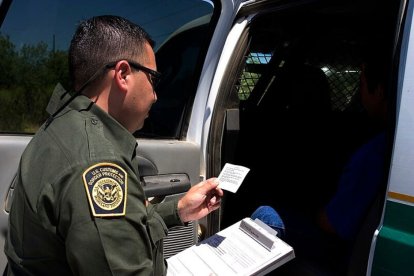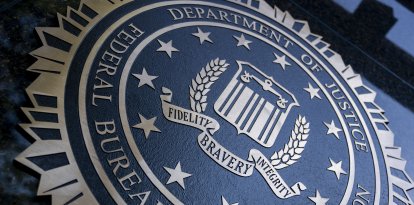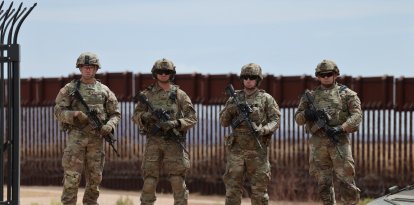With a majority of Muslim origin, the United States terrorist watch list increased to 2 million people
According to a CBS Reports investigation, the size of the list has doubled in six years.

Wikimedia Commons
A CBS Reports investigation has revealed that the US government's terrorist watch list has grown to 2 million people, almost doubling in six years. Despite the suggestiveness of the name, the mere presence of the people in the registry does not imply that they are effectively terrorists, but rather that there is something that made the intelligence community think that they need to have a "closer look."
The origin of the list dates back to 2003, when it included about 120,000 people. In 2017, the last time to date that the figures were made public, the number had grown to 1,160,000 people, almost 10 times more. Now, 20 years after the creation of the list, and thanks to the television network's investigation, reviewing court records, government documents and interviewing current and former leaders of the intelligence community, it was learned that the listees now number two million.
According to Russ Travers, who was a member of the intelligence community for decades, the presence of people on the list “does not mean they are terrorists.” "It means that there is something that has led a department or agency to say, 'This person needs further examination,'" he added.
In accordance with Federal Government policy, agents must have "reasonable suspicions" about the person to include them on the watch list. However, Travers acknowledged that there are names that are still on the list but should be removed. "I'm sure there are a lot of people in the database who are dead and we don't even know it" he added.
However, barring errors - which there are, such as people included for having the same name as a suspect - "those 2 million people who are on the list are on there for a reason," according to Mount Hawkins, who currently helps oversee the Biden Administration's watchlist policies and has served on the all-executive National Security Council since 9/11. Hawkins also noted that "a vast majority" of those on the list are not U.S. citizens or legal permanent residents.
Since appearance on this list carries numerous penalties for those who are included, the FBI recently announced that it has revised the criteria for adding a person to the list. Thus, it now requires more identifying information before entering their names into the database. They even pointed out that those whose names are currently collected but do not meet the new criteria will be deleted from the file. In addition, the inclusion of biometric data, especially faces and fingerprints, will be prioritized to reduce identity confusion.
Majority Muslim or of Middle Eastern origin
In September, a lawsuit was filed by the Council on American-Islamic Relations (CAIR), against the United States over the content of the list, which they accuse of disproportionately and unfairly affecting American Muslims. The complaint was filed in the Massachusetts District Court, on behalf of 12 Muslim plaintiffs from across the country, who asked that their names be removed from the list and also that the list be declared unconstitutional.
"Twenty years later, there is not a shred of credible evidence that the unconstitutional watch-listing of American Muslims has made America even the slightest bit safer," said trial attorney Amy Doukoure.
In early 2019, CAIR says it obtained leaked portions of a version of this year's watch list, which at the time included 1.25 million names. In statements reported by USA Today, Lena Masri, national director of litigation and general counsel of the organization, assured that 1.22 million of them - 98% - were "identifiably Muslim and Middle Eastern in origin. This cannot happen by accident." The leader also defined the list as a "de facto Muslim registry."
The complaint points out that the criteria to be included in the list are discriminatory and subjective, and, as a consequence, the file is ineffective in achieving its objective of guaranteeing the security of Americans. According to CAIR, reasons that may lead to the FBI or the Terrorism Detection Center include, arriving to the US from Muslim-majority countries, making trips to these places, attending religious services in mosques and other Islamic acts, donations to Muslim charities, the frequency of prayers and the use of typically Muslim attire.
RECOMMENDATION





















